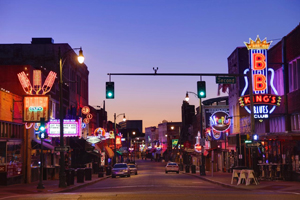by Sam Harley
June 2, 2017
Oakland family, where I joined, did lots of fasting. We ate a liquid breakfast (“Put it in the blender!” was a common shout when we didn’t know what to do with leftovers). I remember having spaghetti sauce for breakfast. We also fasted every Thursday, and on weekends unless we skipped lunch unless we brought a guest to program.
I did my share of cold shower conditions – tough in Tennessee winters, not so hard during Georgia summers. When I was on a fundraising run on a hot day, I’d sometimes ask for two large ice waters (this was before fast food joints started giving you midget cups for water). I’d go to the bathroom, take off my shirt, stand over the sink and douse myself with freezing water.
Memphis was one of the largest cities in a region full of small and mid size towns. It was a big trading city on the Mississippi river, and it fairly reeked of money, but fundraising there in 1980 was an exercise in futility. We went into place after place, with roses, peanut brittle, mints, it didn’t matter. Nobody was interested, nobody could care less. There were buildings going up everywhere, people with huge fancy watches and shiny cars, and at the end of the day we’d come home exhausted with $70 in our pockets.
Fundraising in Memphis felt like throwing yourself repeatedly against a wall made of rubber. If you went in more prayerful, more high spirit, more loving, or more humorous, louder, softer, it didn’t matter, you just got bounced back with the same indifference. We’d do well in other parts of Tennessee, then come to Memphis and bomb. It didn’t help that it was one of the hottest places in the state, sticky and humid in summer. But it made you crazy, seeing all the well-dressed, well-fed, well-to do people walking around dripping with money, and you couldn’t squeeze a dime out of them. They’d be in their custom leather swivel chairs making six figure phone deals, and give us the attention you’d give a housefly.
Our commander, Mr. Nakai, got myself and one or two other struggling brothers and made us a team with himself as captain. We fundraised every day, in trailer parks, shop to shop, nothing special, and in the evening he’d drop us at an all-night market or gas station. He’d pick us up at dawn, and we’d go back, sleep 5 hours, then do it again. It was sheer drudgery after a while; hot and sticky, half asleep, and we’d be out all night and make $60. Sometimes hours would go by and nobody gave. We did learn how to fundraise to raccoon hunters, though. (tip: they don’t like roses much) But our lack of result didn’t seem to bother Mr. Nakai. He just kept putting us out all night.
And Mr. Nakai was quiet, evcn for a Japanese man. He didn’t explain anything, just said “Ok, come back 6 o’clock. Morning.” The first time he did it, I thought “Wait! It’s 9 right now. Don’t you mean 11? or 12? No,” I told myself as I watched him drive the little Datsun away “He said 6 o’clock. Morning.”
There’s only so much you can do while fundraising all night at a market or restaurant. Stand outside, talk to people when they come out. At a restaurant at 3 am, this means they had probably been watching you through the window the whole time they were there, and talking about you. Look at the stars, sing songs, pray, watch the bugs buzzing around the light, make bets with yourself how long it will take the next person to show up. Try to give a Principle of Creation lecture to spirit world, or even better, returning resurrection. Dance from foot to foot to stay awake, bounce up and down, put down your box and do stretches. You could go in and get a cup of coffee, but if you sit down, it’s all over. It’s very hard to get up again.
The first time he set us out all night, I thought it was a one day thing, or maybe a weekend condition. But it went on for weeks. I was too tired to count the days.
Sometime after that, our regular team went into Memphis for the weekend, and something just broke loose. Everyone made $300 or close to it, which was darn good result in Tennessee in 1980. And nobody – nobody – had made that kind of money in Memphis before. Suddenly the rubber wall was gone, and we could connect with people. From that point on, we always made good money in Memphis.
I like to think of it as the Battle of Memphis – the spiritual one. And like most battles, the biggest part of it was sheer drudgery, just slogging along and trying not to complain and keep going. Then something suddenly happened.

